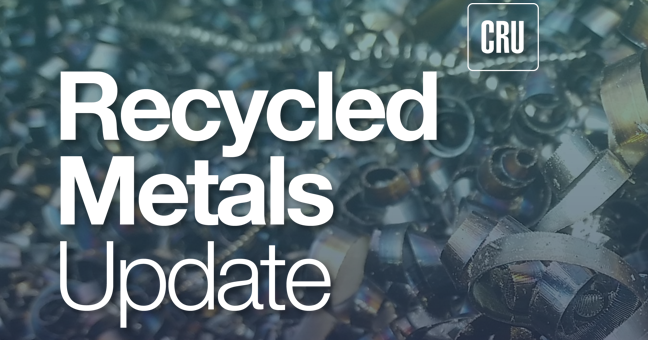Product

October 3, 2024
Will October be the 'last scrap shopping month before Christmas'?
Written by Stephen Miller
The US scrap market has been in a steady decline for the first nine months of this year. As we enter Q4, there seems to be scant hope things will change in October. However, some players are seeing a bit of light after this month, depending on steelmaker appetite for scrap.
RMU contacted a scrap executive in the Chicago district who supervises several Midwestern facilities. He humorously said, “October will be the last scrap shopping month before Christmas.”
He believes there is a 10% chance scrap prices will rise, a 70% chance they will trade sideways, and a 20% chance they will fall.
That 20% chance of falling is related to the potential effects of the longshoreman’s strike that began Tuesday.
If the market does go sideways and prices remain at this relatively low level, this may be the last chance to buy major tonnages of scrap before the market tightens up prior to winter.
He added that on his travels to various scrap processing sites, there is very little inventory on the ground, but obsolescent scrap flows into the yards were decent.
Regarding demand in Chicago and the Ohio Valley, he related his concern about the number of steel mill outages still scheduled, noting integrated steelmakers in Chicago and Cleveland would have smaller programs this month. However, EAF plants in these same regions should have moderate-to-full buying agendas for October. According to him, mills have shown more interest in #1 HMS, which, as RMU has reported, has been underpriced when compared to shredded scrap. This interest has resulted in $30-40 per-gross-ton (gt) increases vs. published mill prices in the Great Lakes region.
So far, RMU has not been advised that steel mills are canceling unshipped orders from September. We have heard mills are going try to take down shredded, but dealer resistance is expected if that happens. In September, several mills initially priced shredded down $15-20/gt. However, they could not cover and had to buy sideways from larger suppliers.
Heading down South, RMU spoke with an executive with multiple yards that supply both the domestic and export markets. He offered his handicap of the market as 50/50, sideways or down. He indicated obsolescent scrap flows into his facilities were off but not too severely. Flows of industrial scrap have also decreased. However, he thought there was not sufficient demand for prime scrap to force prices up.
On the bright side, he said most of the outages in the Southeast are over and most mills are back to operating. Still, several of them have enough inventory to restrict their October buys unless they want to lay in more inventory. Regarding export, with the strike at the ports, buyers in the export arena have ceased offering prices for containerized scrap for fear they will not be able to obtain containers, much less being able to ship.
Needless to say, there are several issues facing the ferrous raw materials markets for October and the rest of the year. Some are optimistic but most seem pessimistic. We’ll cover them either way.







